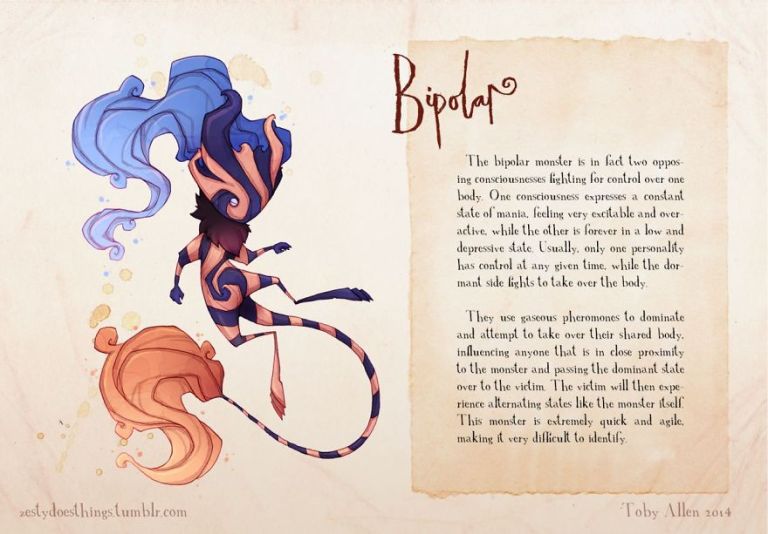
This tweet from my friend Kendra hit me right in the guts.
It came from a Twitter chat on how teachers can support students and colleagues alongside mental health. I am one of the Executive Directors of a group called S.T.A.R.S. Regina, and we decided to host this Twitter chat on #BellLetsTalk Day to open up the conversation about mental health while also raising money for mental health initiatives in Canada.

If you missed the chat, you can catch up by checking out the Storify here.
Anyway, Kendra’s tweet hit me right in the guts because I can relate to getting emotional when it comes to the topic of mental health. I think we all can. Most of us have either experienced mental illness ourselves or have a friend, sister, uncle, cousin, grandparent, or other loved one who immediately comes to mind when we hear the phrase.
For me, that person is my mom. My mom was diagnosed with bipolar disorder in 2006. Throughout my schooling, she was in and out of hospitals in Weyburn and Regina and also spent time in the Mental Health Inpatient Unit at Tatagwa View in Weyburn. For certain periods, my sister and I lived with my aunt, uncle, and cousins while my brother lived with our other aunt, uncle, and cousins. We were able to visit her from time to time but to be honest, I hated going.
The memories swirl in my head… The pungent smell of disinfectant. Long hallways with stupid street signs. A pale pink sweatshirt, her long-ago favourite. Bathrooms with no doors; no privacy for those who might hurt themselves. The stranger in my mom’s body. The empty conversation. Feeling guilty, feeling weak, feeling helpless. Hating the flowers and the “get well soon” cards for putting pressure on her. Staring at the falling leaves out the van window, refusing to let the tears fall.

It was tough for a long time. I used to talk about it more. In eighth grade, I did a research project on bipolar disorder for health, and I remember saying to my classmates: “I chose to research bipolar disorder because my mom lives with it.” I was so brave. As I got older, I started to keep it to myself more and more. I didn’t want anyone to see my mom as less than the way I saw her: strong, beautiful, confident, resilient, independent, selfless, and passionate. I didn’t want anyone to question her love for us or for others’ perceptions of her to be tainted because of her mental illness.
And so the story goes. The terrible stigma keeps many of us quiet. Afraid to speak out for fear of being seen as less competent as a parent, less able to do your job, or less desirable as a friend or partner. A few people voiced these fears during the chat.
It can be so hard to speak out when your reputation, your competence, and your selfhood are on the line. I have a few dear friends who have faced these fears and put themselves at risk by sharing their stories.
In this post, Meagan embraces vulnerability, writing about how she has come to accept her struggle with anxiety.
“I am proud of the fact that I able to share my story. If anything, I believe that my anxiety has not been a hinderance; rather, I am now able to see it as an asset – because of my anxiety, I am strong. Although the journey has not been easy, I am now able to say that I accept the fact that I struggle with my mental health – every, single, day.”
Meagan Dobson
In this post, Katia shares about her experience with depression, acknowledging that silence is a form of complicity in the stigma.
“So instead of struggling in silence, I am speaking out. I am using my own privilege to try to break down some of that ugly stigma. It’s okay to be depressed. It does not make me weak, or unreliable, or a burden.”
Katia Hildebrandt
In this post, Dave shares his journey with ADHD and depression and urges others to share as well.
“Speak as if your life, or the life of your loved ones, counts upon it, because it probably does. Let us raise our voices and break the stigma of mental illness. Those who have fought this battle or are fighting this battle, you are stronger for it. You are not sub-human, but super-human, because you have made the choice to live and made the choice that your story matters.”
David Brown
Along with these brave friends of mine is, of course, my mom. When I texted her to ask if it was okay for me to blog about our experience with bipolar, she replied, “Of course! It’s awesome!” I’ve always admired her openness and honesty in sharing her experiences.
I am so incredibly proud of and grateful to these people for telling their stories. It lets me know I’m not alone in the pain that mental illness brings and reminds me that we can find strength in these difficult experiences.
So let’s keep talking – not just today, but every day.
It may be painful. It may be terrifying. It may put you at risk and make you deeply vulnerable, but there is power in that vulnerability – in the grace, support, understanding, and healing that come through it. Let’s continue to share our stories and encourage others to share theirs. We can find power in our collective voice as we battle the stigma with our stories.
